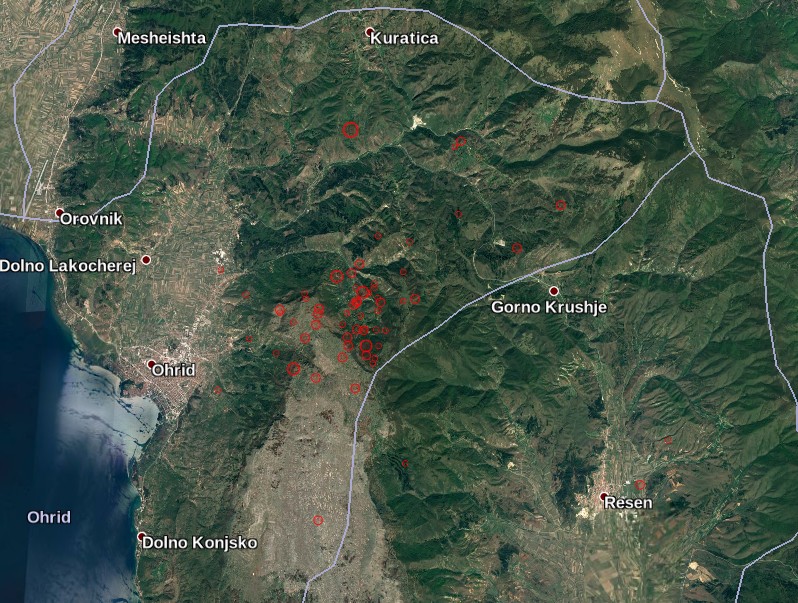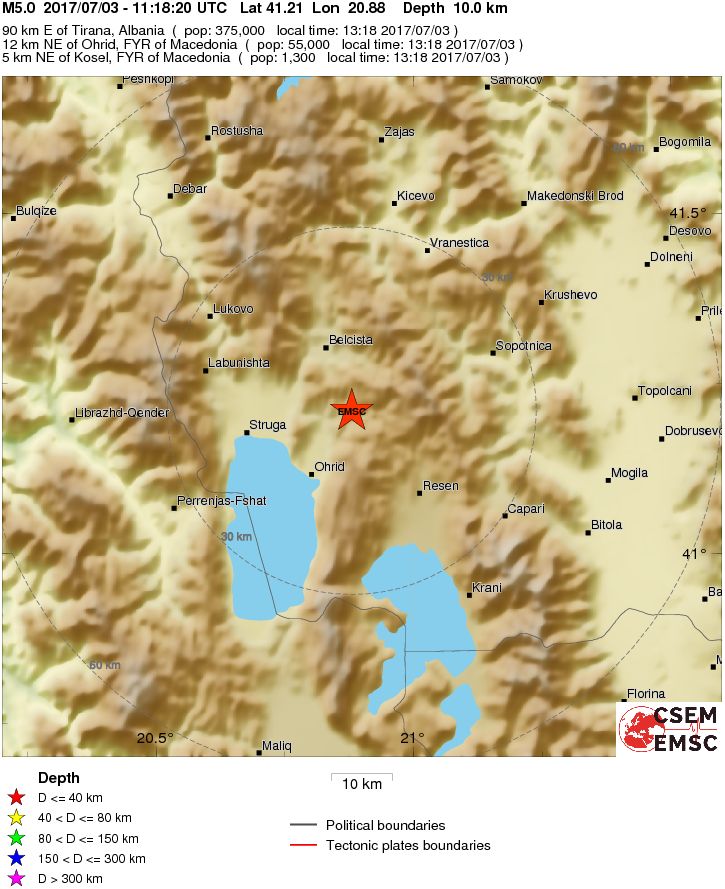Macedonia experts are trying to calm fears of volcanic eruption.
They say the series of small earthquakes that have shaken the lakeside town of Ohrid will not awaken a long extinct volcano. So why do they just have to speak about it?

The lakeside resort of Ohrid in Macedonia is experiencing a long-lasting earthquake swarm scaring residents and tourists alike.
Vulcanologists had now to dismiss fears that the quakes could reactivate a long extinct volcano believed to have existed in the area millions of years ago.
The swarm of earthquakes in Ohrid
Since June 18, the area around Ohrid has been hit by about a thousand smaller tremors, dozens of which, with higher intensity, were felt by local residents.
The one that caused most worries was a 5-magnitude earthquake, which hit at 1.18pm on July 3, 2017, whose tremors were felt in the capital, Skopje, around 170 kilometres away, bracking chimneys, cracking walls and some destroying home appliances.
The tremors that preceded and followed the one on Monday, ranging from 3 to 4 in magnitude, have increased the unease among residents and even prompted some tourists to leave the area.

Following the largest quake of Monday, some media came out with bombastic headlines claiming that the series of quakes had “reactivated the only living volcano in the Balkans”.
The area they spoke of is the site known as Duvalo, near the village of Kosel, in the Ohrid basin, which is famous for its rare geo-thermal phenomenon: sulphuric gasses emitting from the ground.
The reports alleged that the earthquakes have caused new cracks in the ground there and increased emission of gasses in this area, which might lead to a volcanic eruption.
Seismologists and geologists dismissed the claims as mere sensationalism. The earthquakes are neither a cause nor a possible consequence of a supposed volcanic activity: “People should know that in Macedonia and in the Balkans there are no active volcanoes, so things should not get confused. We are talking about a crack in the deeper layers of the earth through which gasses come to the surface. It is true that this is a result of volcanic activity that happened on today’s Macedonian territory, over 5 million years ago, but from a scientific standpoint this is not a volcano but a common crack.”
There is really something weird going on in Macedonia.











